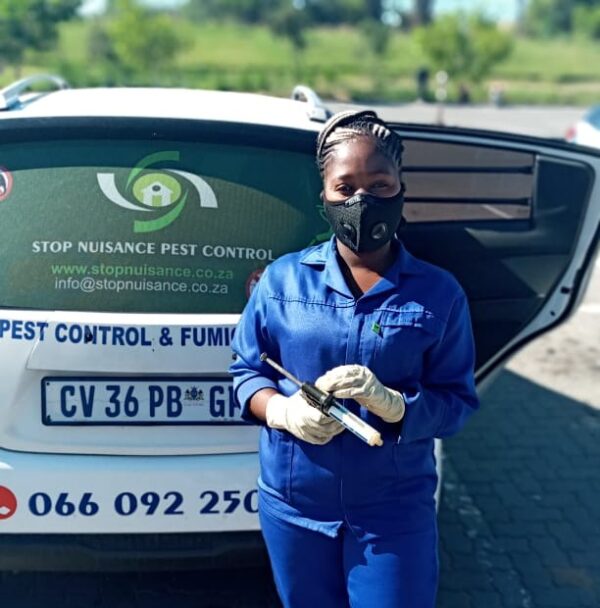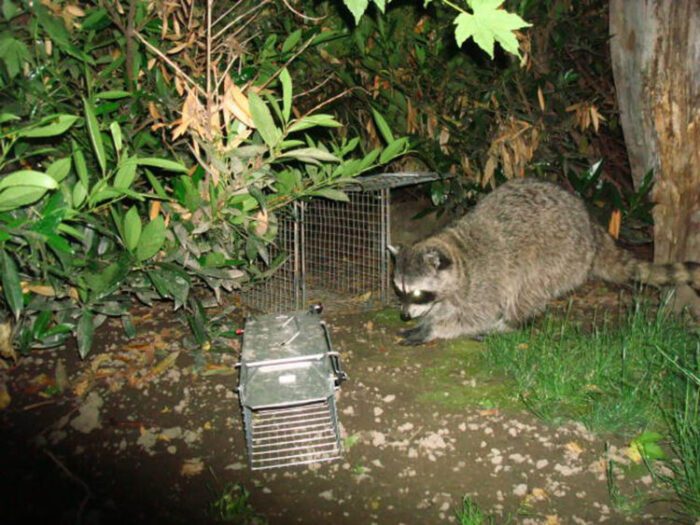Raccoons will attack and eat chicken, ducks, quails, rabbits, and other small-medium-sized animals if given the chance. They will eat off the head and the crop and might leave the rest of the body.
Table of Contents
Why Do Raccoons Kill Chickens and Not Eat Them?
Raccoons are carnivorous animals and will kill or eat whatever thing they consider an “easy meal”.
Chickens are usually high on their menu because they can’t fly long distances, aren’t very fast, can’t even defend themselves, and sadly, they are a rich source of protein for humans and animals.
Raccoons are destructive animals. If they get into a coop, they usually kill a lot of chickens. Typically, they will eat the undigested food in the chickens’ crops, and maybe a little of their meat.
They seem to be more motivated by killing chickens than they do eating them though. Unlike some predators, like large birds of prey or foxes, raccoons do not remove chickens to share with their pack.
Will Raccoons kill Chickens during Day?
Yes, a hungry raccoon will break into your chicken coop if it’s not secure enough and eat your birds.
See also Can Dogs eat Racoon Meat?!
ALSO SEE: Can A Racoon Drown A Dog?
Do Raccoons Eat Baby Chickens?
Baby chickens are an easy source of protein for raccoons. So, yes, they will have a feast with them.
Do Raccoons Eat Chicken Eggs?
Yes, raccoons will steal and eat chicken eggs if an opportunity presents itself.
Do Raccoons Eat Chicken Bones?
Sometimes yes, sometimes no. It depends.
Do raccoons kill roosters?
One rooster might not be enough to deter a raccoon so a Coon might kill the rooster. However, a gang of roosters might stand a chance.
Do Raccoons Eat Chickens Heads?
Yes, some do, others don’t.
How Do I Know If A Raccoon Killed My Chickens?
You’’ notice the following:
- Blood and feathers everywhere with pieces of your poor chickens inside and outside the coop.
- The dead bodies of the chooks will be missing crops.
How To Get Rid Of A Raccoon Eating My Chickens
- Use sprinklers and motion-activated lights
- Racoon proof your chicken coop and run
- Loud noises
- Surround yard with predator odors.
- Flashing lights.
- Make loud noises
- Motion sensor lights.
- Increase visibility around the coop.
- Lock chickens up at night.

Will Raccoons Dig Under Chicken Coop?
Yes, raccoons do not mind digging underneath barriers to access and massacre your chickens. Being smart also means they can open latches and reach their paws through the wire mesh fencing that is usually used to keep coops secure from other predator types.
Deterring Raccoons from Chicken Coop
Here are a few tips to help keep raccoons away from your chicken coop:
Because raccoons are mostly nocturnal creatures, you can clear away any leftover pet meals, and keep your birds locked away in their secure houses.
You can also set live raccoon traps to catch and relocate their critters.
Raccoons are super smart, creative, and are good at using their fingers. They use their smartness and fingers to break-in and enter your chicken coops.
See also Do Raccoons Lay Eggs, Yes or No? LEARN MORE!
The best way to beat them at their game is to use a bunch of complicated lock mechanisms. You will want to install a lock that takes at least two steps to open. The more complicated the system is, the more effective it will be at keeping out raccoons. Some people use combination locks for padlocks, while others use a lock as well as a cinderblock to keep the door secure.
Once all your chooks are inside their coop, go around and inspect it making sure there are no spaces inside where raccoons can slip through.
For added security, seal up all of the potential entry points in your coop with hardware cloth. Use the smallest cloth you can find, ideally ¼ inch hardware cloth. The same rules apply to chicken tractors.
Raccoons are notorious for sticking their fingers through larger holes and pulling chicken through the hole, often shredding it to bits as it does so.
Don’t neglect the top and bottom of your coop, either
Yes, you heard me right. Do not give in to laziness, especially during the winter season.
If a manual chicken door isn’t what you want then you may want to consider installing an automatic coop door opener.
Young pullets and cockerels are fond of sleeping on the ground at night, where raccoons can easily catch them and wreak havoc!
That is because these chickens haven’t developed natural instincts to ward off an attack. So, keep an eye for them and make sure the ground is secure and cannot be dug into by coons.
By keeping your feed supply out of reach of all animals, you’re discouraging raccoons from paying your yard a visit.
See also How Can You Tell How Old a Baby Raccoon Is? [Secret Shared]
Don’t leave chicken food hanging out in the coop overnight. Make sure spills are cleaned up quickly, as the food can easily attract raccoons to the coop.
Raccoons are great climbers so invest in a covered run. That way, they’re unable to scale to the top of the fence, and even if they do, they still won’t be able to get inside the pen.
Don’t forget that these pests like to dig! Consider burying hardware cloth about four feet deep around the coop and run. This can prevent them from digging and getting underneath the fence.
The simplest means of keeping raccoons away from your flock is just by being with them. Raccoon dislikes loud noises, flashing lights, and strong odors.
They will sense your presence and will less likely approach a coop with you and a dog nearby. If you keep a dog on the property and you have a known raccoon problem, just make sure you and your pet are vaccinated against rabies, as raccoons are known carriers.
Placement of a few rags soaked with ammonia around your property can help deter raccoons. This should be a last resort though.
Chickens are not sensitive to capsaicin (the ingredient in cayenne pepper that makes it so spicy).
The raccoons, however, won’t come anywhere near your chickens if you sprinkle cayenne pepper around the perimeter of the property, so it’s a great way to keep these predators at bay.
If everything else fails then you may want to give trapping a try. Simply remember that lots of areas discourage the movement of raccoons from one area to another, so you’ll need to look into your local regulations if your goal is to trap a raccoon and release it elsewhere.
When there is a known raccoon problem on your farm, the best way to trap one is with a have-a-heart (or Hav-a-Hart) style trap. This kind of trap will allow you to trap the animal without any risk of injuring it. This is different than the foot- and leg-hold traps you often see for sale.
You may need to get in touch with animal control or a wildlife rescue service to see if they can help you address the issue before deciding to shoot a raccoon or a family of raccoon.
Good luck!

With over 5+ years of experience in pest control and a PhD in Entomology, our author brings a blend of scientific knowledge and practical expertise to Pestifier.com. Passionate about creating pest-free environments, they provide effective tips and strategies for managing and preventing pest infestations. Connect on Facebook for the latest updates and insights.

